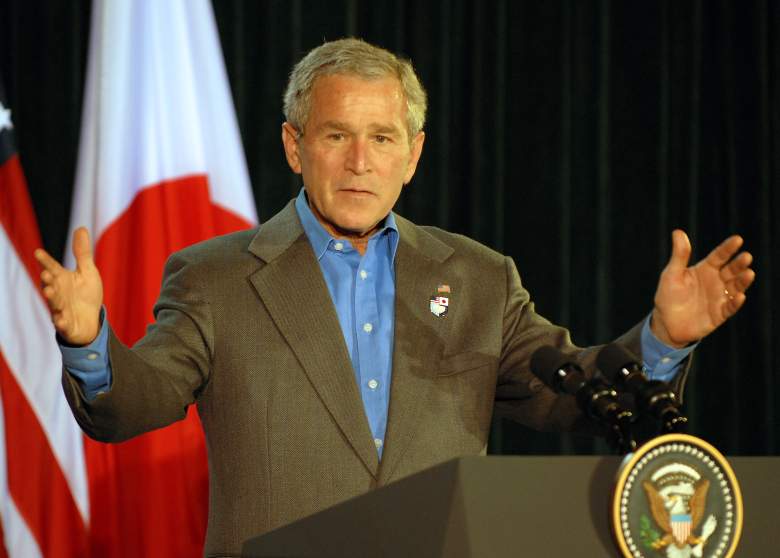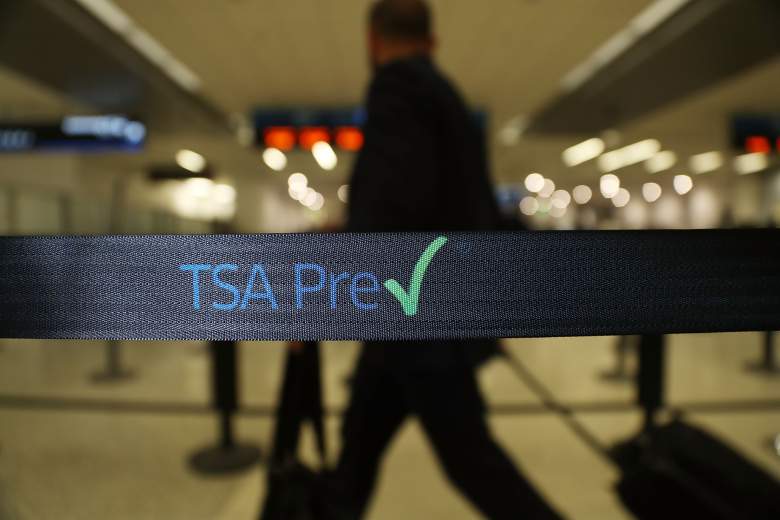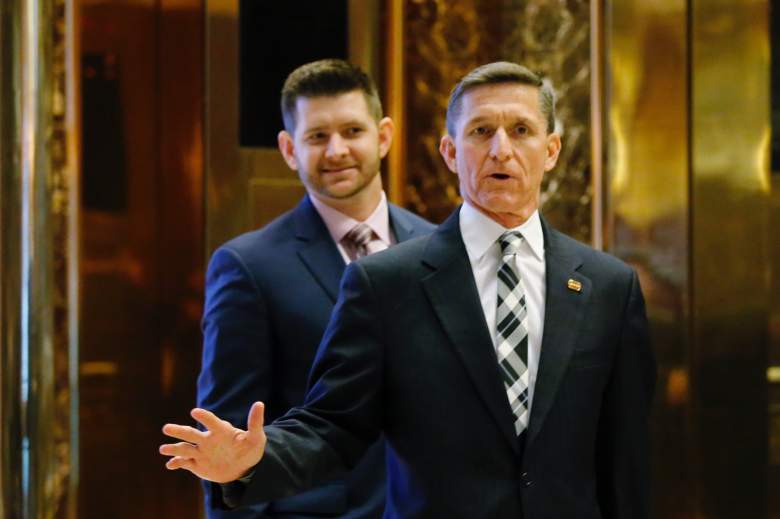Donald Trump has selected Tom Bossert to be his top homeland security adviser.
Bossert will serve as assistant to the president for Homeland Security and counterterrorism. This is the position currently held by Lisa Monaco. According to The Washington Post, the person in Bossert’s role is often the first to brief the president after a terrorist attack.
This is not a part of the president’s cabinet, and so Bossert’s appointment is not subject to congressional approval.
Here’s everything you need to know about Tom Bossert.
1. He Worked in the George W. Bush Administration

President George W. Bush speaks during a press conference in April 2007. (Getty)
Tom Bossert is one of several Trump appointees who worked for the previous Republican president, George W. Bush.
Bossert served as deputy Homeland Security advisor for President Bush during the final year of his administration. He was involved in developing the president’s first cybersecurity strategy. Before this appointment, Bossert held positions in the Federal Emergency Management Agency, the Small Business Administration, the Office of the Independent Counsel, and the House of Representatives. While he was the White House’s director of infrastructure protection policy, he managed the U.S.’ infrastructure security.
Since leaving the White House, Bossert has served as a cyber risk fellow at the Atlantic Council’s Cyber Security Initiative. He is also president of Civil Defense Solutions, a management consulting firm.
“Tom brings enormous depth and breadth of knowledge and experience to protecting the homeland to our senior White House team,” President-Elect Donald Trump said in a statement. “He has a handle on the complexity of homeland security, counterterrorism, and cybersecurity challenges. He will be an invaluable asset to our Administration.”
2. He Co-Authored the 2007 National Homeland Security Strategy
While working in the George W. Bush administration, Bossert co-authored the 2007 National Strategy for Homeland Security. This outlined the federal government’s approach to security following the September 11th terrorist attacks, and this was the second version following a 2002 Homeland Security strategy.
In addition to discussing the prevention of terrorist attacks, the strategy also identifies natural disasters as being potentially just as catastrophic.
“The resulting national consequences and possible cascading effects from these events might present potential or perceived vulnerabilities that could be exploited, possibly eroding citizens’ confidence in our Nation’s government and ultimately increasing our vulnerability to attack,” the document reads. “This Strategy therefore recognizes that effective preparation for catastrophic natural disasters and man-made disasters, while not homeland security per se, can nevertheless increase the security of the Homeland.”
3. He Has Defended the Iraq War
Throughout his presidential campaign, Donald Trump criticized the George W. Bush administration for its handling of the Iraq war, saying that this war never should have taken place. He went as far as to say that President George W. Bush knowingly lied to the American people when he said that there weapons of mass destruction in Iraq.
“They lied,” Trump said during a Republican primary debate in February 2016. “They said there were weapons of mass destruction. There were none. And they knew there were none. There were no weapons of mass destruction.”
Bossert disagrees, and as recently as 2015, he defended Bush’s decision to invade Iraq.
“To be clear, the use of military force against Iraq and Afghanistan was and remains just,” Bossert wrote in The Washington Times in November 2015. “…Hussein’s behavior and the intelligence at the time led Mr. Bush to conclude the use of military force to remove him was not only just, but necessary.”
4. He Has Questioned the Implementation of Reduced TSA Screening

Travelers go through the TSA PreCheck security point at Miami International Airport in June 2016. (Getty)
In another piece for The Washington Times published earlier this year, Bossert expressed skepticism over the idea of reducing TSA screening at airports.
Bossert cites a conclusion from the Government Accountability Office that the TSA’s screening process is flawed. Bossert then talks about the TSA’s new PreCheck program, in which passengers are rewarded with an abridged screening process if they agree to undergo a background check.
“The policy trap lies in failing to examine alternatives to abridged screening as an incentive to volunteers — fundamentally a nod to convenience over security,” Bossert writes. “Whether based on digital background checks or personal interaction, if behavioral detection fails, a strong screening baseline meant to detect weapons and explosives will be the agency’s only saving grace.”
Bossert concludes by saying that because the Transportation Security Administration has had a failing record when it comes to intelligence collection and analysis, they may need help from the intelligence community.
5. Trump Says Bossert Will Be Equal in Status to Michael Flynn, the National Security Adviser

Michael Flynn and his son, Michael G. Flynn arrive for a meeting at Trump Tower. (Getty)
In their press release, the Trump transition team emphasizes that Tom Bossert will be considered equal in rank to Michael Flynn, the president-elect’s choice for national security adviser.
Under the Obama administration, the Homeland Security Council and the National Security Council were merged, but Trump will be making these two separate entities again, according to CNN. Flynn will focus on international security and Bossert will focus on domestic security.
This may be a relief to the Democrats and moderate Republicans who were outraged when Flynn was announced as Trump’s pick for national security adviser; Flynn has made numerous inflammatory statements about Muslims, including that Islam is a “vicious cancer” and that fear of Muslims is rational.
In contrast, Bossert is a relatively uncontroversial choice, and some Democrats voiced their support for him this week. Democratic Representative Jim Langevin of Rhode Island told The New York Times that Bossert has dealt with cyberthreats in a centrist, bipartisan manner.
